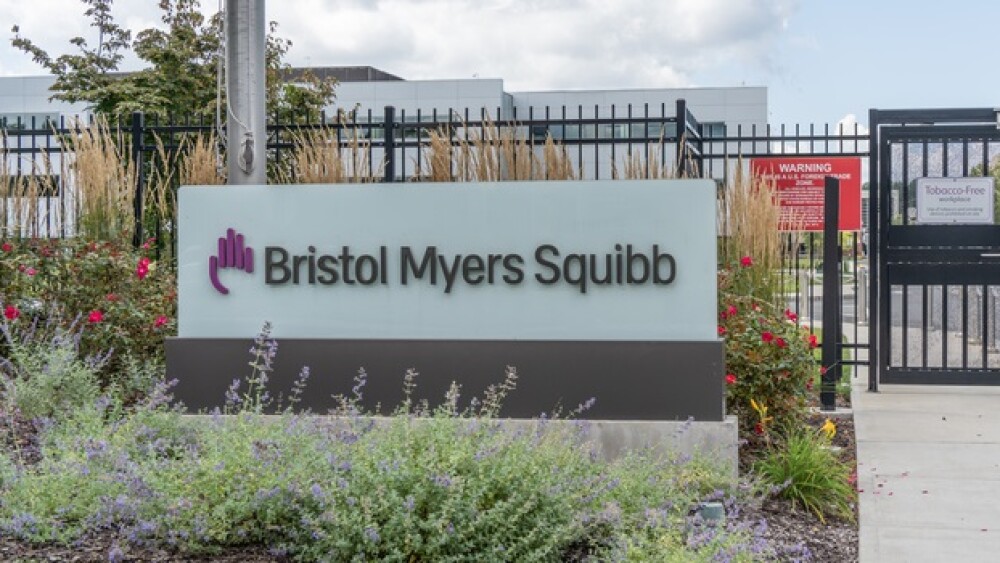Data from a late-stage study showed that Bristol Myers Squibb’s Zeposia (ozanimod) was unable to significantly improve clinical remission in adult patients with moderate to severe active Crohn’s disease.
Pictured: Bristol Myers Squibb signage at its office in New Jersey/iStock, arlutz73
Bristol Myers Squibb on Thursday announced that its oral drug Zeposia (ozanimod) fell short of its primary efficacy endpoint in the Phase III YELLOWSTONE program in patients with moderate to severe active Crohn’s disease.
The pharma did no provide specific data in its announcement, only revealing that Zeposia “did not meet its primary endpoint of clinical remission” at 12 weeks of follow-up. Zeposia’s safety profile in YELLOWSTONE was consistent with what had been established in previous trials.
Roland Chen, head of immunology, cardiovascular and neuroscience development at BMS, said that the company is “disappointed” with the findings. “To date, no S1P modulator has shown an effect in a Phase III trial in Crohn’s disease, where a high unmet medical need remains for new therapies that offer more patients relief from symptoms and the potential for remission.”
Designed to be orally available, Zeposia is a sphingosine 1-phosphate (S1P) receptor modulator that works by targeting the S1P subtypes 1 and 5. Its mechanism of action is still not completely known, according to its label, but it might prevent lymphocytes from leaving lymph nodes and migrating into the gut.
Zeposia first won the FDA’s approval in March 2020 for the treatment of relapsing forms of multiple sclerosis. The drug cleared another regulatory hurdle in May 2021, opening up its use for moderately to severely active ulcerative colitis.
BMS tested Zeposia’s mechanism of action as a treatment for Crohn’s disease through the Phase III YELLOWSTONE program, which included two 12-week induction trials each with around 600 patients enrolled. Responders in these studies moved on to a 52-week maintenance phase and then to a 264-week open-label extension phase.
YELLOWSTONE’s primary endpoint in the induction phase is clinical remission, quantified as a score of less than 150 in the Crohn’s Disease Activity Index.
According to Thursday’s announcement, BMS is still conducting a full analysis of YELLOWSTONE’s data and will work with trial investigators to share its findings with the scientific community.
The disappointing readout breaks BMS’ short clinical and regulatory winning streak. Earlier this month, the pharma reported that a combination regimen of Opdivo (nivolumab) and Yervoy (ipililumab) significantly improved overall survival in patients with advanced hepatocellular carcinoma.
A few weeks earlier, the pharma also notched a regulatory win for another Opdivo-based treatment regimen as a first-line treatment option for unresectable or metastatic urothelial carcinoma.
Tristan Manalac is an independent science writer based in Metro Manila, Philippines. Reach out to him on LinkedIn or email him at tristan@tristanmanalac.com or tristan.manalac@biospace.com.






